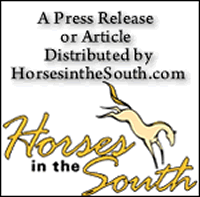Heavy mosquito season expected due to warm winter

West Nile Virus and Eastern Equine Encephalomyelitis are endemic in the state and can cause illness or death, but can be prevented with a sequence of two vaccines.
More mosquitoes are expected this year because of the warmer-than-normal winter. Officials don’t know for sure if that will mean an uptick in mosquito-borne viruses or if disease transmission will start earlier in the season. However, State Veterinarian David Marshall says that common sense would dictate being extra vigilant since the diseases are so easily preventable.
“In addition to getting vaccinated earlier this year, everyone needs to be vigilant in reducing the breeding grounds for mosquitoes,” Marshall said. “Take the time now to rid your yard and pasture of any standing water to reduce your risk.”
The EEE and WNV vaccinations initially require two shots, 3 to 4 weeks apart, for horses, mules and donkeys that have no prior vaccination history. Neither vaccination fully protects the animal until several weeks after the second shot, so it is best to vaccinate as early in the mosquito season as possible. Marshall also recommends a booster shot of each vaccine be given every six months in North Carolina because of the extended mosquito season.
Symptoms of EEE include impaired vision, aimless wandering, head pressing, circling, inability to swallow, irregular staggering gait, paralysis, convulsions and death.
Symptoms of WNV in horses can include loss of appetite and depression, fever, weakness or paralysis of hind limbs, convulsions, impaired vision or hyperexcitability.
People, horses and birds can become infected from a bite by a mosquito carrying the diseases, but there is no evidence that horses can transmit the virus to other horses, birds or people through direct contact.
CONTACT: Dr. Tom Ray, director
Veterinary Division Animal Health Programs – Livestock
919-733-7601